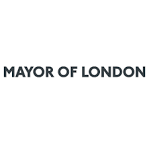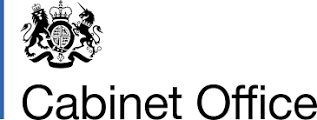PRESS RELEASE : Mayor brings back beavers in Ealing, bees in Bexley and bats in Barnes as he sets out plans to rewild London [March 2023]
The press release issued by the Mayor of London on 20 March 2023.
- 22 London projects, covering an area five times the size of St James’s Park, receive funding from the Rewild London Fund to return nature to the city
- Mayor’s London Rewilding Taskforce identifies 11 potential 100 hectare ‘rewilding opportunity zones’ to be explored as London’s first dedicated rewilding area on top of ‘on top of the £1.45m invested so far through the Rewild London Fund’
- Mayor commits another £1m this year to deliver more rewilding in London
On World Rewilding Day (Monday 20th March), The Mayor of London, Sadiq Khan has reiterated his support for restoring London’s natural biodiversity by committing a further £1m to rewilding the capital.
The new funding comes as the Mayor announces the 22 recipients of his Rewild London Fund. The £850,000 fund, delivered by the London Wildlife Trust with commitment from Amazon’s Right Now Climate Fund, will go to projects focusing in and around London’s Sites of Importance for Nature Conservation (SINCs). These include:
- Bringing Beavers Back to Ealing: Citizen Zoo, alongside Ealing Wildlife Group, Ealing Council and Friends of Horsenden Hill is reintroducing beavers back to West London after a 400 year absence. The chosen site in Ealing will be transformed into a flourishing and immersive wetland, combatting the climate crisis and creating a biodiverse ecosystem for plant and animal diversity. Rewild Funding will help drive the project forward.
- Thamesmead Pollinator Corridor: a partnership project between North West Kent Countryside Partnership (NWKCP), The Ridgeway Users Group, University Of East London, Bow Arts and Bumblebee Conservation Trust (BBCT) working with communities to create a pollinator corridor through Thamesmead. The project aims to boost numbers of the rare Shrill Carder Bee and other pollinator species by increasing the amount of forage plants and nesting sites needed by these species.
- Palewell Beverley Brook Restoration: Barnes Conservation, part of Barnes Common Limited, is improving 1.25km of the Beverley Brook to encourage natural processes along the waterway and improve habitat for insects, fish, bats and birds as well as increasing connectivity between Richmond Park National Nature Reserve and Barnes Common Local Nature Reserve.
- Yeading Brook Unbound: as part of the Crane Valley Partnership and in collaboration with local groups and volunteers, Harrow Council’s ambitious, large-scale Yeading Brook Unbound project will make lasting changes – both major and minor – to the brook, its margins and adjoining areas within SINC
S, parks and neighbouring allotments along the watercourse. - Beckton Park Meadows: This project is kick-starting delivery of opportunities to create more space for nature in Beckton Park that were identified through feasibility and community design work funded by the Mayor’s Green and Resilient Spaces Fund. 3,000 square metres of wildflower meadow will be created. The improvements are part of a wider masterplan for Beckton Parks that will increase biodiversity and help to tackle climate change.
All together, these 22 projects will enable around 116 hectares of priority habitat to be restored or created, the equivalent to five St James’s Parks.
Today’s further £1m funding will build on this success by establishing a new competition for rewilding projects that restore habitats and support species reintroduction, as well as supporting the creation of a pilot large-scale rewilding scheme. This will be a site of at least 100 hectares (the equivalent of 140 football pitches) designated for the reintroduction and restoration of nature and wildlife.
Areas that could be suitable for the pilot rewilding scheme have been identified by Mayor’s London Rewilding Taskforce in their recommendations report, launched today. They include the Colne Valley and Ruislip Woods in the west, Enfield Chase in the north, the Thames Marshes in Bexley and Havering in the east and the Croydon and Bromley Downs in the south of the capital.
The recommendations of the Taskforce emphasise the role that rewilding can play to help reframe the relationship between people and the urban nature around them. The Taskforce emphasises that allowing nature to recover will bring positive outcomes to Londoners, ranging from health and well-being benefits, providing nature-based solutions to challenges like air pollution and flooding, and addressing the climate and ecological emergencies.
The Mayor of London, Sadiq Khan said: “We are now facing dual climate and ecological emergencies worldwide, which further threaten our ability to survive on our planet. Despite the harm inflicted on the natural world, we have the power to make amends, and I am committed to ensuring that London is at the vanguard of efforts to reverse the trends of declining biodiversity and the destruction of nature.
“Rewilding allows nature to take the lead and is an exciting way to create healthier ecosystems and allow humans and wildlife to live together more harmoniously. I’m proud that London is leading the way once again and excited to see what can be achieved with this further £1m of funding. We’re cleaning up our city, re-establishing lost species and reconnecting people and nature as we build a greener, fairer city for all Londoners.”
Mathew Frith, Director of Research and Policy at London Wildlife Trust, Rewild London Fund partner and Rewilding Taskforce member said:
“This funding enables an exciting tranche of biodiversity projects to further progress nature’s recovery in the capital. They will help strengthen, enhance and extend the important network of over 1600 Wildlife Sites* that forms the foundations of nature conservation in London, and thereby contribute to a wilder, greener city.
“London Wildlife Trust is pleased to have partnered with the Mayor of London and Amazon to both set the ambitions of the Fund and select the successful projects. We look forward to overseeing the delivery of these which should raise the bar for the critical restoration of priority wildlife habitats and the recovery of populations of species, from harvest mouse to tawny owl, and bumblebees to beetles, to make London a better place for nature, which people can experience close to hand.”
Nick Swallow, Citizen Zoo Fundraising Operations Officer said: “Across Europe and North America, beavers are known to thrive alongside urban communities. Bringing a range of benefits from increasing resilience to the challenges of climate breakdown to enriching people’s daily lives, as they encounter these magnificent mammals in their local greenspaces. With the GLA’s support and alongside our partners Ealing Wildlife Group, Ealing Council and Friends of Horsenden Hill, we hope to challenge the perceptions of Londoners and demonstrate how London too, can embrace these ecosystem engineers as we strive for a healthier, wilder future in which our Capital can become a leader in urban rewilding, which will greatly benefit not only wildlife populations but local communities too”
Nicky Gavron, co vice-chair of the London Rewilding Taskforce said: “This is such an exciting initiative. It has been a pleasure and a privilege to work with such an accomplished Taskforce and GLA team on this report. From the Green belt to our iconic parks, riverbanks, gardens, balconies and window boxes, there’s an opportunity to let nature lead and wildlife – from bumblebees to beavers, thrive in our city. Ensuring wild nature is at the centre of how we design, live, play, and work within cities is fundamental to improving our spaces, health, and quality of life for all London’s communities.”
Ben Goldsmith – co vice-chair of the Taskforce said: “There is no good reason why all people should not have ready access to nature, whether or not they live in our largest cities. Each one of us needs nature for our physical, mental and spiritual wellbeing. The Mayor has shown great leadership in launching our London Rewilding Taskforce, which seeks to weave nature back through the fabric of our city. I can’t wait to witness the recovery of an array of plants and wildlife across London!”
Zak Watts, Director, EU Sustainability, Amazon: “These projects will provide a much-needed boost to biodiversity in the city, while new woodlands, wetlands, ponds and meadows aim to increase resilience to the effects of climate change. For Londoners, these projects offer a vital way to discover and reconnect with nature.”
“This is all part of a wider commitment through Amazon’s Right Now Climate Fund, as we invest in ways to accelerate nature’s recovery in communities where we live and work. We’re excited to see the positive results they bring.”



